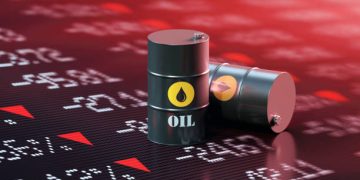WASHINGTON, D.C. — U.S. President Donald Trump indicated plans to “substantially” raise tariffs on Indian imports, citing concerns about India’s role in global oil trade dynamics. The statement, made via social media on Monday, follows recent policy shifts targeting international trade relationships.
President Trump claimed India is purchasing and reselling significant volumes of oil, generating considerable profits. While no specific tariff rate or timeline was disclosed, the President suggested that adjustments to trade policy would soon follow.
Last week, the administration imposed a 25 percent tariff on select Indian goods, referencing longstanding concerns over market access, reciprocal trade practices, and India’s import activity in the global energy sector.
In response, India’s Ministry of External Affairs rejected what it described as “unjustified” criticism of its trade practices. Spokesperson Randhir Jaiswal stated that the country’s energy imports are designed to ensure stable and affordable fuel prices for Indian consumers, especially amid volatile global markets.
“India, like all major economies, will take necessary measures to protect its economic security and national interest,” Jaiswal said in an official statement.
Jaiswal also emphasized that India’s international partnerships operate independently and should not be viewed through the lens of third-party relations. He reiterated India’s position on maintaining diversified and balanced trade ties.
Despite recent tensions, the U.S. and India maintain significant trade volumes, with U.S. imports of Indian goods valued at $87.4 billion in 2024, based on U.S. government data.
Trade analysts suggest that any major shift in U.S. tariff policy toward India could impact several sectors, including textiles, pharmaceuticals, and information technology services, all of which form a substantial part of India’s export portfolio to the U.S.
Further developments are expected as officials from both countries monitor the economic and diplomatic impacts of the proposed changes.
#TradePolicyUpdate#TariffsAndDuties#GlobalTradeNews#InternationalRelations#SupplyChainNews

















